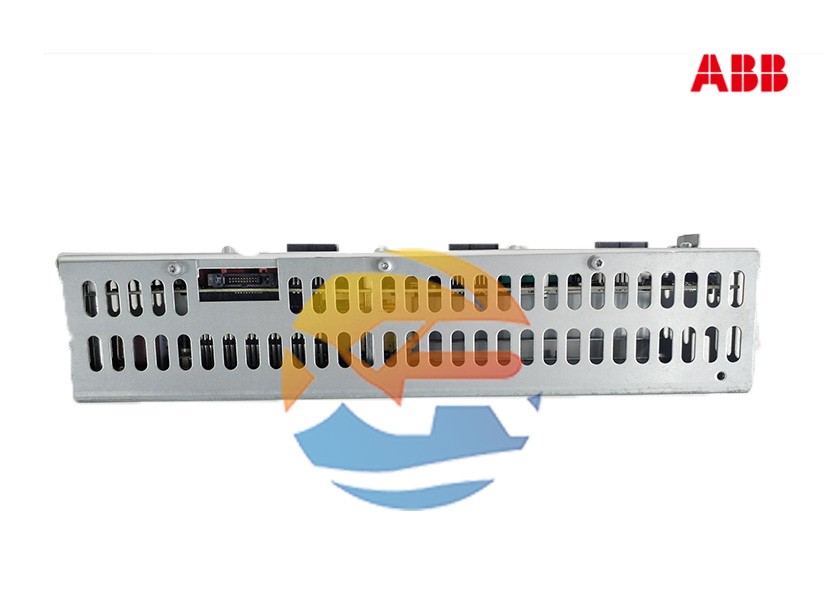In an electrical substation or industrial power distribution system, the failure of the auxiliary control power can be as catastrophic as a fault on the main power line. Without reliable power, protection relays cannot operate, and circuit breakers cannot trip. The ABB BCU-02 3AUA000110429 battery charger unit is the dedicated safeguard against this scenario. This article explores the critical applications of the BCU-02, demonstrating its role in maintaining system integrity within switchgear and other essential equipment.

The Critical Need for Uninterruptible Control Power
The control circuits for medium-voltage circuit breakers, protection relays, and automation systems typically require a reliable DC power source, commonly 24V, 48V, or 110V DC. This power must be available at all times, especially during a fault on the main power system, which often causes the standard AC auxiliary power to fail. This is where the battery and the BCU-02 become the last line of defense.
Key Application Areas for the ABB BCU-02
1. UniGear ZS1 Medium-Voltage Switchgear
The primary application for the BCU-02 is within ABB's UniGear ZS1 switchgear panels.
- Role: In each switchgear panel, the BCU-02 is responsible for providing DC power to the panel's own intelligent protection relay (like a REF615 or similar), the circuit breaker's spring charging motor, and the tripping/closing coils.
- Scenario during a Fault: When a short-circuit occurs on a feeder, the voltage may collapse. The AC power supply for the control circuits may fail. However, the protection relay, powered by the BCU-02 and its battery, remains operational. It detects the fault and sends a trip signal to the circuit breaker. The breaker's tripping coil, also powered by the battery, activates instantly to clear the fault, preventing extensive damage.
2. DC Power for Substation Automation Systems
Beyond a single panel, the BCU-02 can be used as a local source of reliable DC power for other devices in a substation automation system.
- Role: It can power communication modules, data concentrators, or other IEDs (Intelligent Electronic Devices) that are critical for system monitoring and control. Ensuring these devices remain online during a station blackout provides operators with vital situational awareness.
3. Backup for Industrial Process Control
In large industrial plants, critical processes often rely on medium-voltage motors fed by circuit breakers.
- Role: A loss of control power could prevent a crucial motor from being shut down safely during an emergency, leading to process disruption or equipment damage. The BCU-02 ensures that the control system for these motors has uninterrupted power, allowing for safe and orderly shutdown procedures.
The Consequences of BCU-02 Failure
Understanding the applications highlights what is at stake. A failure of the battery charger unit can lead to:
- Protection System Failure: The battery will eventually drain, leaving the protection relays without power and the electrical system unprotected. A subsequent fault could lead to equipment destruction and pose a serious safety hazard.
- Circuit Breaker Inoperability: A breaker cannot be opened or closed without control power, leading to an inability to isolate faulty equipment or reconfigure the system.
- Loss of Monitoring and Control: Operators are left "in the dark" during a power system disturbance, unable to assess the situation or take remote control actions.
The Tangible Benefits of a Reliable BCU-02
- Enhanced System Safety: Ensures that fault clearance sequences can always be executed, protecting both personnel and equipment.
- Improved Power Availability: Prevents minor disturbances from escalating into major outages by guaranteeing control functions remain active.
- Battery Health Management: The intelligent charging features extend battery life, reducing maintenance costs and increasing the overall reliability of the backup system.
Conclusion
The application of the ABB BCU-02 3AUA000110429 is fundamentally about risk mitigation. Its role in powering protection and control systems in switchgear is a critical link in the safety chain of any electrical network. By ensuring the availability of control power under all conditions, it acts as a silent guardian, enabling the automated systems that keep our electrical infrastructure safe and reliable.
